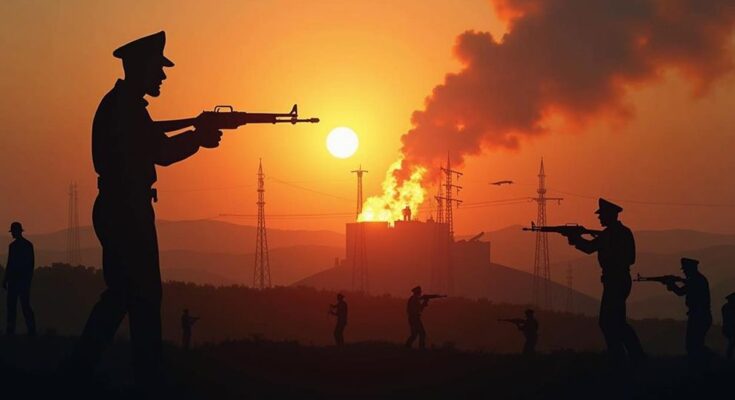President Biden opposes an Israeli strike on Iran’s nuclear sites following an Iranian missile attack. He emphasizes a proportional response and coordination among G7 nations while reiterating U.S. support for Israel. Sanctions against Iran are expected, as tensions escalate between the two nations.
President Joe Biden has expressed his opposition to an Israeli retaliatory strike against Iran’s nuclear facilities following an Iranian missile attack on Israel. While he supports Israel’s right to respond proportionately, he emphasized the need for a coordinated international response to the crisis. Prior to departing on Air Force One, Biden stated, “We’ll be discussing with the Israelis what they’re going to do, but all seven of us (G7 nations) agree that they have a right to respond, but they should respond proportionally.” He did not specify a timeline for an expected discussion with Israeli Prime Minister Benjamin Netanyahu. Biden also reiterated that sanctions against Iran would be implemented, noting, “Iran is way off board.” In a meeting with other leaders from the G7 nations, Biden underscored the shared concern regarding Iran’s actions and mentioned the need for increased sanctions against the Islamic Republic for its aggression towards Israel. According to White House Press Secretary Karine Jean-Pierre, during this meeting, Biden conveyed the United States’ unwavering solidarity with Israel and reaffirmed its commitment to the nation’s security. In response to the missile attack, Prime Minister Netanyahu vowed that Iran would face severe repercussions for the assault, which involved more than 180 ballistic missiles. Analysts expect Israeli retaliation could specifically target Iranian nuclear or oil facilities. The United States, alongside Israel, the United Kingdom, and France, participated in defensive measures against the missile strike on Tuesday night. While the U.S. has cautioned Iran regarding potential repercussions for its actions, it continues to prioritize diplomatic efforts, while Israel is enhancing its military stance to address its security concerns. U.S. Deputy Secretary of State Kurt Campbell emphasized the necessity of aligning the United States’ response with Israel, while also acknowledging the precarious state of affairs in the Middle East, noting that any major escalation might threaten both Israeli and U.S. interests. At a virtual event held by the Carnegie Endowment, Campbell remarked that Iran’s provocations were “deeply irresponsible” and indicated the necessity for a compelling response, reiterating support for Israel’s actions, although expressing caution towards large-scale military operations in Lebanon.
The article discusses the delicate geopolitical situation surrounding the tensions between Israel and Iran. Following a significant missile attack by Iran on Israeli territory, the Biden administration has sought to balance support for Israel’s right to defend itself while advocating for a measured international response. The ongoing strife between these two countries is underpinned by longstanding issues and conflicts that have regional implications, necessitating careful diplomacy to avoid escalation into a wider conflict. The involvement of multiple nations, particularly the G7, underscores the global interest in maintaining stability in this volatile region. President Biden’s position reflects a commitment to Israel’s security alongside a preference for coordinated international actions rather than unilateral military strikes. This situation exemplifies the complexities of international relations in the context of regional conflicts and national security.
In conclusion, President Biden’s stance on the recent Iranian missile attack on Israel highlights a commitment to supporting Israel while also promoting a balanced and proportional response to such provocations. His discussions with G7 leaders and the emphasis on sanctions against Iran reflect the urgent need for collaborative international efforts to address the escalating tensions. While Israel prepares for a potential retaliation, the U.S. remains focused on diplomatic solutions to avoid a larger conflict, illustrating the intricate dynamics of security and diplomacy in the region.
Original Source: www.jpost.com




